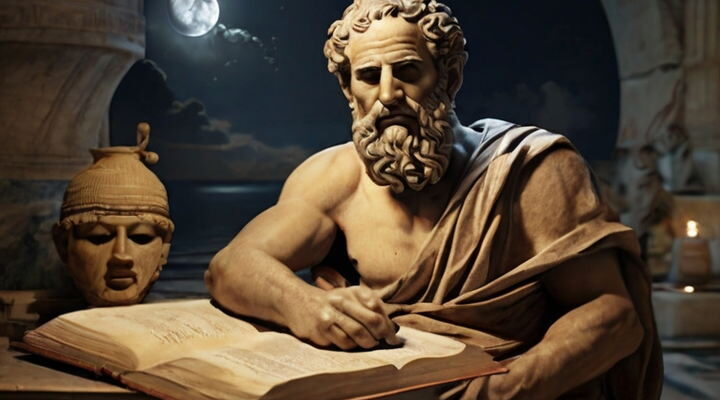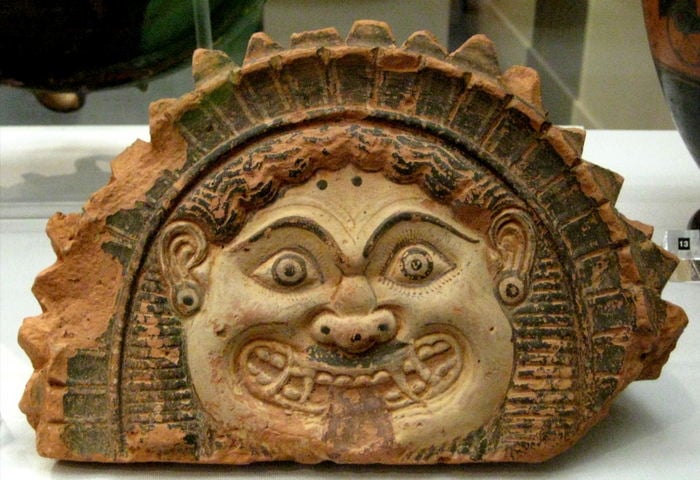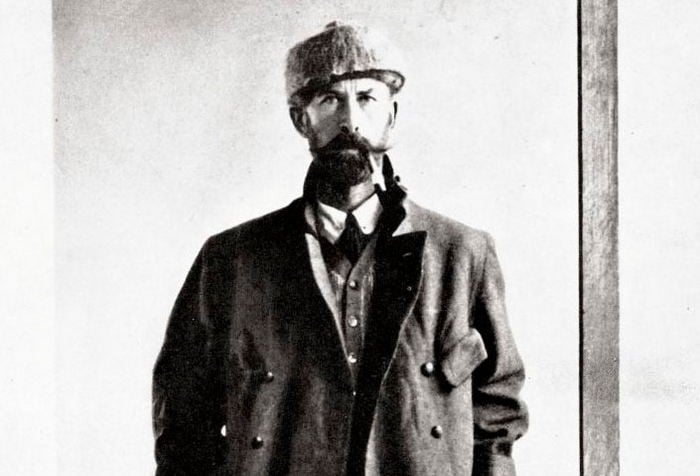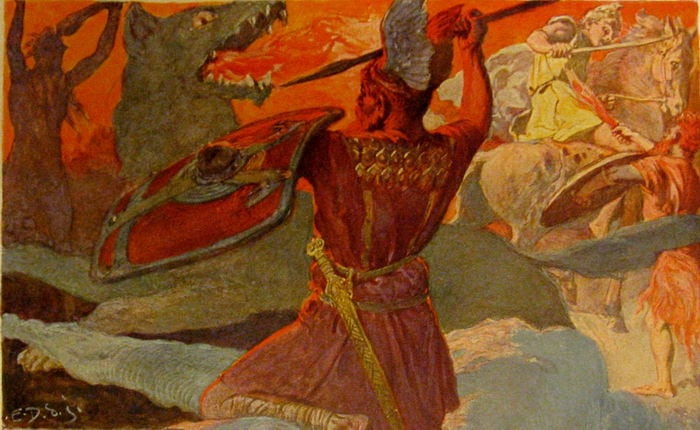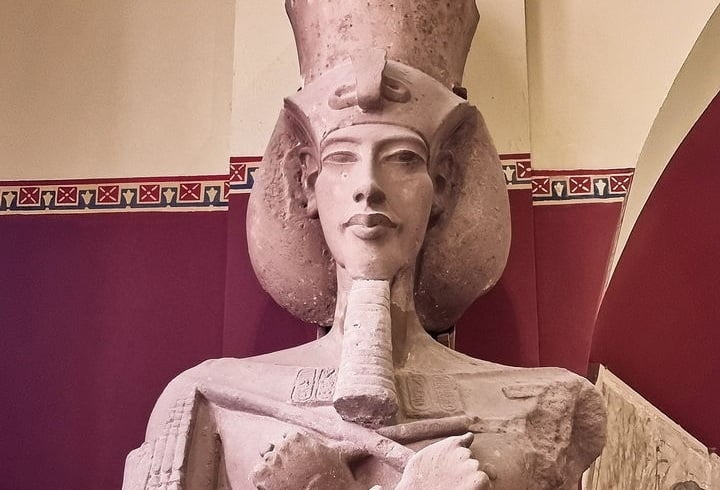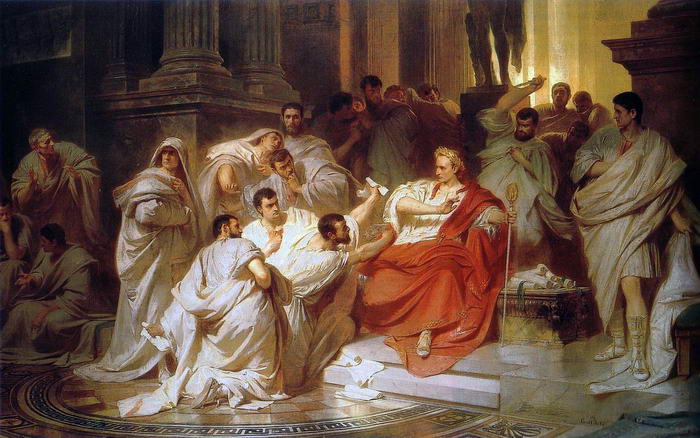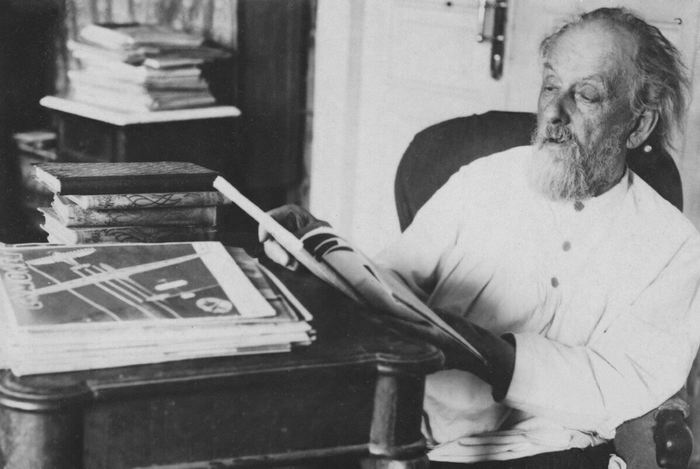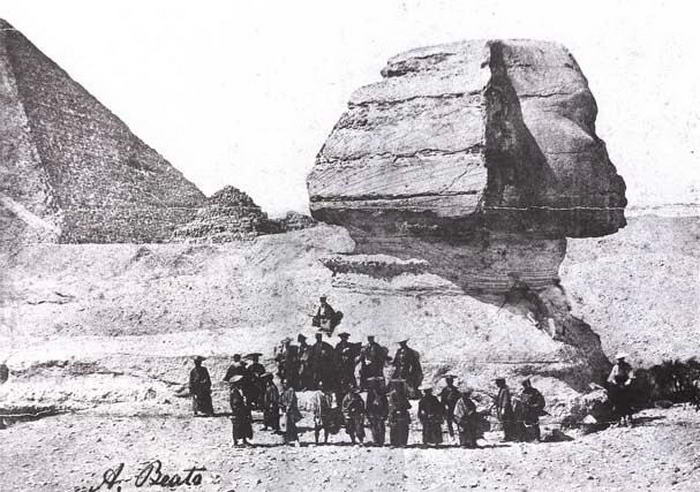When you think about the grand tapestry of ancient Greek philosophy, names like Socrates, Plato, and Aristotle often steal the spotlight. But there’s a figure, somewhat shadowed by these giants, whose contributions are nothing short of groundbreaking. Enter Anaximander – a pre-Socratic thinker who dared to look at the world through a lens so unique that it still captures our curiosity today.
Anaximander, a name not as familiar as some of his counterparts, holds a special place in the annals of Greek philosophy. Born in the early 6th century BCE in the vibrant city of Miletus, he stands out as an early beacon of intellectual prowess. This pre-Socratic philosopher ventured where few others did, crossing the boundaries of philosophy, astronomy, geography, and biology, all with a flair of ingenuity.
Imagine a time when the concept of a structured cosmos was still in its infancy, a period ripe with mysteries and unanswered questions. Anaximander took on these mysteries with a boldness that set the foundations for scientific inquiry. His vision of the universe was not only revolutionary for its time but resonates even in today’s scientific discussions.
But why does Anaximander matter in the grand scheme of things? It’s simple: he embodies the spirit of inquiry and curiosity that drives human understanding forward. His work reminds us that questioning the status quo, exploring uncharted territories, and thinking beyond the visible are the cornerstones of intellectual progress.
In this exploration of Anaximander’s life and contributions, we’re not just revisiting history; we’re rediscovering the roots of our quest for knowledge. His ideas, some of which align with modern scientific principles, are proof of humanity’s timeless pursuit of understanding the universe and our place within it.
10 – The First Map Maker of the Known World
Anaximander’s claim to fame includes being one of the earliest cartographers. His ambitious project to map the known world was nothing short of revolutionary in the 6th century BCE. This wasn’t just a map; it was an attempt to understand the world beyond the immediate surroundings of Greek civilization. Imagine the sheer audacity and vision it took to conceive of such an idea at a time when much of the world remained unexplored and mysterious.
His map encompassed what we now know as the Middle East and parts of the Mediterranean, providing a framework for future explorers and thinkers. It wasn’t just about land and sea; it was about charting the unknown, about setting the stage for trade routes, exploration, and cultural exchange. Anaximander’s map laid the groundwork for the advancement of geography, making it a pivotal moment in the history of science.
09 – Political Involvement in Miletus
Aside from his intellectual pursuits, Anaximander was deeply involved in the politics of Miletus, an ancient Greek city known for its wealth and cultural significance. His role wasn’t limited to philosophical musings; he actively participated in shaping the political landscape of his time. This included being sent as a leader to one of Miletus’s colonies, a testament to his leadership and influence.
This involvement in politics and governance offers a glimpse into the multifaceted nature of ancient Greek intellectuals. They were not just thinkers but doers, actively engaging in the societal and political issues of their day. Anaximander’s role in politics underscores the interconnectedness of philosophical thought and practical governance in ancient Greece.
08 – Anaximander’s Unique Cosmic Perspective
Delving into Anaximander’s cosmic views opens up a world of intrigue. He proposed that the universe was bound by geometric order, a stark contrast to the prevailing monarchic view of a cosmos ruled by gods. This geometric perspective was revolutionary, suggesting that the Earth was positioned at the center of this cosmic order, maintaining equilibrium.
This concept was not just a philosophical abstraction; it represented a fundamental shift in how humanity perceived the universe. Anaximander’s geometric universe was a precursor to later astronomical models, paving the way for a more scientific understanding of our cosmos. His ideas were a leap towards the future, contributing significantly to the evolution of astronomical thought.
07 – The Apeiron Concept: The Origin of All Things
Anaximander introduced a groundbreaking idea with the concept of ‘Apeiron’. He envisioned the Apeiron as an indefinite, boundless primordial mass, the source of all existence. Unlike his predecessors who believed in more concrete substances like water or air as the origin of everything, Anaximander proposed that the beginning of all was something beyond human comprehension – infinite and undefined.
This concept was more than a mere philosophical musing; it marked a significant shift in thought. It opened up the possibility that the universe and all its components originated from something formless and ever-changing. The Apeiron concept is seen as Anaximander’s most significant contribution, laying the groundwork for future philosophical and scientific inquiries into the nature of the universe and the origin of life.
06 – Contributions to Astronomy: Beyond Earth and Sky
In the realm of astronomy, Anaximander’s insights were equally profound. He was among the first to theorize that celestial bodies were distant entities, challenging the then-common belief that stars and planets were fixed on a sphere surrounding the Earth. His speculation about the Sun was particularly revolutionary, suggesting it was a massive entity, far away from our planet.
Anaximander’s astronomical theories extended beyond the simple observations of his time. He proposed that the Earth was free-floating and not supported by any substance, a concept that defied conventional wisdom. His ideas about the structure of the solar system and the nature of celestial bodies were significant steps towards our modern understanding of astronomy.
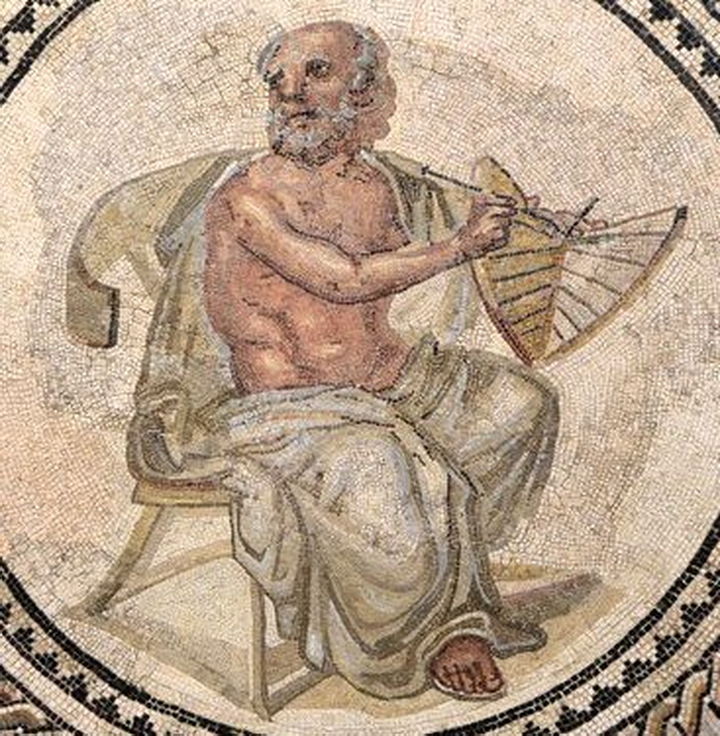
05 – Explanation of Meteorological Phenomena: Winds and Thunder
Anaximander was also a pioneer in explaining meteorological phenomena through naturalistic observations. He theorized about the origins of wind, thunder, and lightning, attributing these occurrences not to the actions of gods, as was commonly believed, but to natural processes. For example, he explained thunder and lightning as results of the wind breaking through clouds, a remarkably accurate hypothesis given the knowledge available at his time.
His approach to understanding weather patterns and natural phenomena was a departure from mythological explanations. Anaximander’s method of seeking rational explanations for natural occurrences laid the foundation for scientific meteorology, encouraging future generations to seek natural causes behind the workings of the world around them.
04 – Biological Speculations: Pioneering Thoughts on Life’s Origins
Anaximander was a true trailblazer when it came to biological theories, especially regarding the origins of life. He speculated that life began in water and that the first living creatures were born in a moist environment. This hypothesis was revolutionary, suggesting a form of evolution long before Darwin’s theories. He even proposed that humans evolved from fish-like creatures, a bold idea that challenged the conventional wisdom of his time.
His views on human development were particularly intriguing. Anaximander theorized that early humans could not have survived in their immediate form and thus must have originated from other species. This idea of gradual transformation laid the groundwork for later evolutionary theories. His biological speculations, though rudimentary, signaled a significant shift from mythological explanations of life to a more observational and scientific approach.
03 – Philosophical Writings: The Legacy of ‘On Nature’
Anaximander’s philosophical writings, particularly his work “On Nature,” had a profound impact on the trajectory of natural philosophy. Although only fragments of his work survive, they offer a glimpse into his revolutionary thinking. “On Nature” delved into the concepts of the Apeiron, the formation of the world, and the interplay of opposites – ideas that were seminal in shaping the discourse of early Western philosophy.
His writing style, which melded poetic elements with philosophical discourse, set a precedent for future philosophical works. The influence of “On Nature” extended far beyond Anaximander’s lifetime, inspiring subsequent philosophers and contributing to the evolution of metaphysical and cosmological thought.
02 – Concept of Time and Infinity: A Revolutionary View
Anaximander’s ideas on time and infinity were as groundbreaking as his other theories. He perceived time as boundless, viewing it as an eternal cycle within which the universe operated. His perspective on the eternal recurrence of life and the cosmos introduced a new dimension to Greek philosophical thought.
This concept of an ever-repeating cycle of creation and destruction in the universe was a precursor to later philosophical and scientific explorations of time. Anaximander’s vision of an infinite, cyclic universe challenged the linear time concepts of his contemporaries and influenced subsequent philosophical and scientific discussions about the nature of time and the universe.
01 – Legacy and Influence: A Pillar in Science and Philosophy
Anaximander’s legacy in both science and philosophy cannot be overstated. His contributions laid the foundations for various scientific fields, including biology, astronomy, and meteorology. He was a pioneer in moving away from mythological explanations to a more rational, empirical approach to understanding the world.
His influence extended beyond his immediate era, shaping the thoughts of many later philosophers and scientists. Anaximander’s willingness to challenge established norms and explore new ideas made him a crucial figure in the transition from mythological to rational explanations of the natural world. His legacy is a testament to the enduring power of curiosity and intellectual bravery.
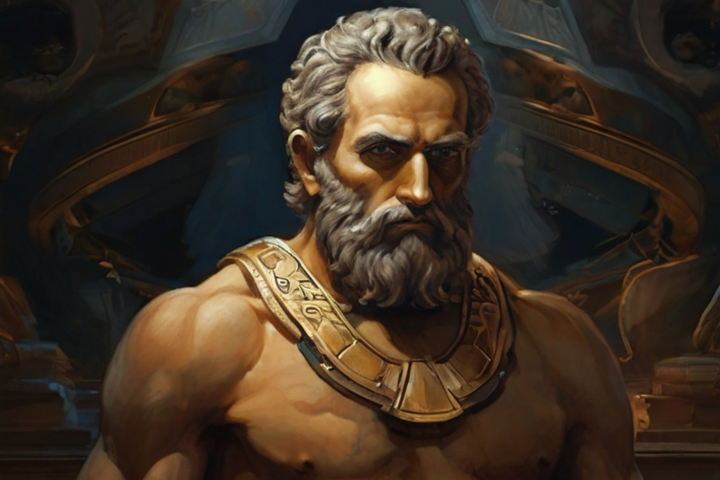
Anaximander’s Influence on Modern Thought
Anaximander, a figure from ancient history, surprisingly echoes in the corridors of modern scientific and philosophical thought. His influence stretches far beyond his own era, intersecting with various aspects of contemporary understanding:
- Pioneering Scientific Concepts:
- The Boundless Universe: Anaximander’s concept of the Apeiron as an infinite and undefined origin of all things prefigures modern ideas about the boundlessness of the universe.
- Evolutionary Biology: His speculation about life originating in water and humans evolving from fish-like creatures aligns with current evolutionary theories.
- Astronomical Insights: His thoughts on celestial bodies and the structure of the solar system set the stage for modern astronomy.
- Philosophical Impact:
- Rationalism over Mythology: Anaximander’s shift from mythological to rational explanations paved the way for a more empirical approach in both science and philosophy.
- Conceptualizing Time and Infinity: His ideas on eternal recurrence and cyclic time influenced philosophical debates about the nature of time and existence.
- Cultural and Educational Influence:
- Anaximander’s theories continue to be a staple in educational curricula, illustrating the historical development of scientific thought.
- His approach to questioning and exploring the natural world is a model for critical thinking and scientific inquiry.
Anaximander’s ideas were revolutionary, planting seeds for thoughts and theories that would only come to fruition centuries later. It’s fascinating to see how his ancient theories resonate with and anticipate modern scientific and philosophical concepts. His holistic approach to understanding the universe, combining astronomical, biological, and meteorological observations, demonstrates a remarkably modern way of thinking.
In conclusion, Anaximander’s legacy is a testament to the power of human thought and curiosity. His contributions are not merely historical footnotes; they are integral to our understanding of the world and continue to influence modern thought in profound ways. As we continue to explore the mysteries of the universe, Anaximander’s pioneering spirit remains a guiding light.
Reflecting on Anaximander’s Timeless Legacy
As we wrap up our exploration of Anaximander’s life and theories, it’s clear that his impact stretches far beyond the confines of ancient Greek philosophy. His forward-thinking ideas laid the groundwork for numerous scientific and philosophical developments, making him a figure of enduring significance in the history of human thought.
Anaximander’s contributions to fields as diverse as biology, astronomy, geography, and meteorology reflect a mind that was remarkably ahead of its time. His ability to look beyond the visible and question the accepted norms of his era marks him as a true pioneer in critical thinking and scientific inquiry.
But what makes Anaximander truly timeless is not just the breadth of his ideas but their lasting relevance. In today’s world, where scientific and philosophical exploration continues to shape our understanding of the universe, Anaximander’s approach serves as an inspiration. He reminds us that the quest for knowledge is boundless and that the answers we seek often require us to challenge our assumptions and look at the world from new perspectives.
As we continue to unravel the mysteries of the universe, the spirit of Anaximander – that of an inquisitive, rational, and pioneering thinker – remains more relevant than ever. His story is a beacon, guiding us through the complexities of the cosmos and the intricacies of existence, reminding us of the incredible journey of human thought and the unending quest for understanding.


